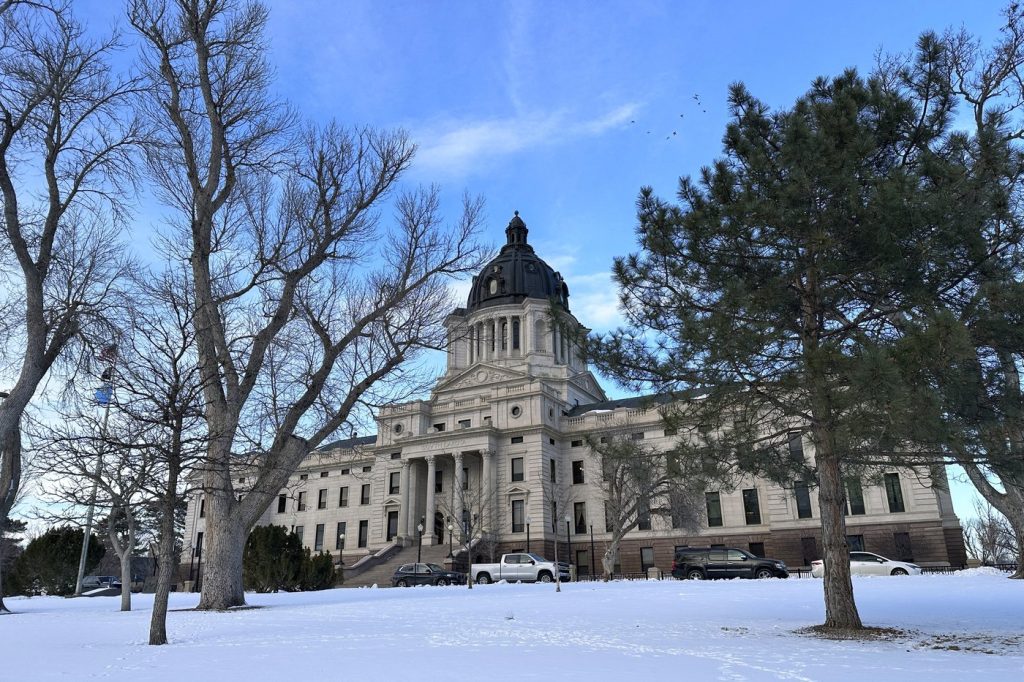In South Dakota, the state constitution refers to the governor using male pronouns—an issue that has garnered attention in light of the state’s recent history. Kristi Noem, a conservative Republican, served as South Dakota's first female governor for six years. Recognizing the outdated language, Noem championed a constitutional amendment to replace the gendered term with gender-neutral language, aiming to include not just women but also nonbinary individuals. However, during the 2024 general election, voters ultimately rejected this measure.
Across the United States, many state constitutions reflect an antiquated perspective that defaults to male pronouns for officeholders. This comes despite a significant increase in female representation in political positions. By 2023, there was a record number of 13 women serving as governors, and 2,469 women held positions in state legislatures according to the Center for American Women and Politics at Rutgers University.
While a few states, such as New York and Vermont, have updated their constitutions to use gender-neutral language, many have not followed suit. Recent efforts in Washington state to modernize its constitution faltered in a legislative committee. In Connecticut, state Senator Mae Flexer expressed intentions to push for further constitutional revision. Some states, including Nevada and California, have resolved to adopt gender-neutral terms within their legislative language, referring to lawmakers as assembly members rather than assemblymen or assemblywomen.
Debbie Walsh, the director of the Center for American Women and Politics, emphasized the importance of language in conveying values and promoting inclusivity. Noem emphasized the need for an update during her 2023 State of the State address, highlighting that the South Dakota constitution was created in 1889 and lacking in inclusive language. She pointed out that the constitution requires the governor to address the legislature and mentioned how the language used does not accommodate the term "she."
In the subsequent months, Noem signed a bill to revise existing state laws to replace male pronouns with more gender-neutral terms. However, amending the constitution requires voter approval, and the proposed amendment was met with resistance from the electorate. The bill’s sponsor, Republican state Senator Erin Tobin, believed the defeat was partly due to the use of the word "pronoun" in the ballot wording, suggesting that it was entangled with broader conservative views on gender identity.
Some voters opposed the measure based on preconceived notions surrounding nonbinary identities and due to a lack of campaign efforts for the amendment. Notably, some legislators expressed their concerns about the financial implications of implementing the changes. South Dakota's attorney general crafts the title and explanation for any constitutional amendments, which raised questions about the clarity of the proposed measure.
State Representative Brandei Schaefbauer publicly encouraged voters to reject the amendment, stating her belief in the importance of referencing gender explicitly and opposing gender-neutral terms. Neil Fulton, Dean at the University of South Dakota School of Law, noted that the masculine pronouns historically used in the constitution were intended to be inclusive of all officeholders, regardless of gender. He cited that no challenges had ever been made against the inclusion of female officeholders in South Dakota.
Despite the ongoing conversation surrounding gender-neutral language, Governor Noem has maintained a record of opposing measures related to gender transitions. Her administration has been marked by legislation prohibiting gender-affirming care for youth and restricting transgender athletes from participating in sporting events aligned with their gender identity.
Following her resignation in January to join former President Donald Trump's Cabinet, the dialogue around gender inclusivity in political language continues. Trump’s recent executive orders further emphasize a binary understanding of gender, reflecting a broader political context that seeks to reaffirm traditional gender norms.
As linguistic conventions evolve, the debate on how to modernize state constitutions to reflect current societal norms remains a critical consideration in South Dakota and across the nation.










